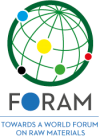 Geological and Geophysical Institute of Hungary (MFGI)
Geological and Geophysical Institute of Hungary (MFGI)
The Geological and Geophysical Institute of Hungary (MFGI) was established in April 2012, merging the former Geological Institute of Hungary (MÁFI, est. 1869) and the Eötvös Loránd Geophysical Institute (ELGI, est. 1907). MFGI is a public research institute operating under the Ministry of National Development. MFGI’s mission is to support Hungary’s economic competitiveness, the effectiveness of public services and policy by providing up-to-date geoscientific information for the government and the society. As a national geological and geophysical survey MFGI is responsible to advance geoscientific knowledge of Hungary’s landmass by systematic acquisition, interpretation, management and dissemination of geoscientific data. The current number of employees is 165, most of them highly qualified researchers in various fields of geology, geophysics, environmental sciences, and IT technology.
MFGI core activity focuses on potential assessment and preparation of concessions for various mineral resources, especially energy-related (hydrocarbon, geothermal, coal), integrated studies of geohazards, strategic research and policy recommendations connected with the environment (including groundwaters) and climate changes. MFGI and its precursor institutes have been actively involved in the site selection and site investigation for the disposal of low-, medium and high-level radioactive wastes in Hungary, as well as in the field studies for the site expansion of the Paks Nuclear Power Plant. MFGI has profound international experience by participating in different types of EU projects, currently in FP7 (DORIS – Ground Deformation Risk Scenarios: an Advanced Assessment Service; PANGEO – Enabling Access to Geological Information in Support of GMES; CGS – Pan-European coordination Action on carbon-dioxide geological storage), IEE (Geo-DH – Promote geothermal district heating in Europe), ICT PSP (EuroGeoSource – EU Information and Policy Support System for Sustainable Supply of Europe with Energy and Mineral Resources; ThermoMap – Area
mapping of superficial geothermic resources by soil and groundwater data), South-East Europe Program (SNAP-SEE – Sustainable Aggregates Planning in South-East Europe); Central Europe Program (Transenergy: Transboundary geothermal energy resources of Slovenia, Austria, Hungary and Slovakia) and MINATURA2020 project (mineral policy topic). Since 2007 MFGI has been actively involved in CTBTO activities, especially in the on-site inspections and field seminars (nuclear aftershock monitoring, active seismic survey). Being a National Data Centre, MFGI takes part in the CTBTO-International Monitoring System, too. MFGI’s geoscientific laboratories have capability and experience to qualify and quantify chemical composition and mineralogy of natural and artificial materials using ICP-OES, (LA)-ICP MS, FTIR, GC, gamma-spectral analysis and DTA instrumentation and providing high-level training in these technologies.
